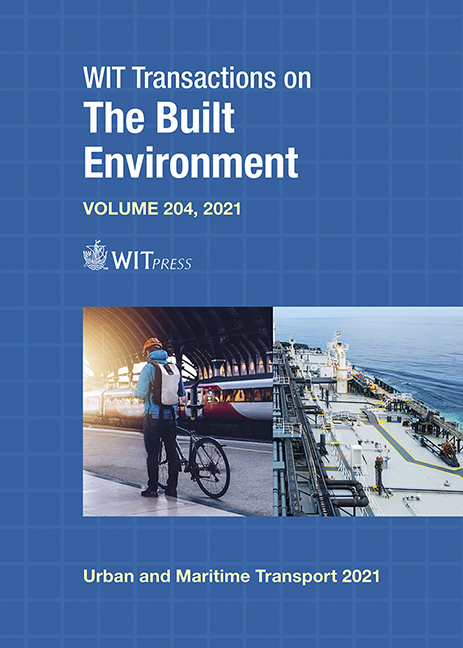LACK OF STRATEGIC INTERVENTION IN THE REGULATION OF THE MINIBUS TAXI INDUSTRY IN SOUTH AFRICA
Price
Free (open access)
Transaction
Volume
204
Pages
11
Page Range
179 - 189
Published
2021
Paper DOI
10.2495/UT210151
Copyright
Author(s)
SIYABULELA CHRISTOPHER FOBOSI
Abstract
The minibus taxi industry was founded by the black community and continues to mainly serve this community. The industry expanded within the framework of the policy of deregulation of the apartheid government. After twenty-six years of democracy, South Africa is still haunted by an informal andunregulated minibus taxi industry. The regulation of the industry has been sought over the years without success. While the state subjects the industry to social control through the entry regulation and route allocation, the state is characterised by a pattern of strategic selectivity (in relation to public transport plans) which shows that institutions (departments) privilege some actors over others. Government practices strategic selectivity by privileging the formalised public transport – buses and trains – over the informal minibus taxi industry. The state has failed to regulate the industry due to a lack of engagement with different actors in the industry. Against this background, this article examines the failed regulation of the industry by the state. It was only through the 2020 National Taxi Lekgotla (a national meeting for the minibus taxi industry) during the October Transport Month that government successfully engaged with the taxi industry, albeit without the participation of the National Taxi Alliance. Using qualitative research methods, the author interviewed research participants to investigate the context of precariousness in South Africa’s minibus taxi industry. The author discovered that while the industry is characterised by precarious practices resulting from the employers, these practices are also due to the lack of strategic intervention in the industry as displayed by the state. The author performed a thematic analysis of all the interviews conducted.
Keywords
minibus taxi industry, Johannesburg, regulation, unregulation, strategic selectivity, transformation





